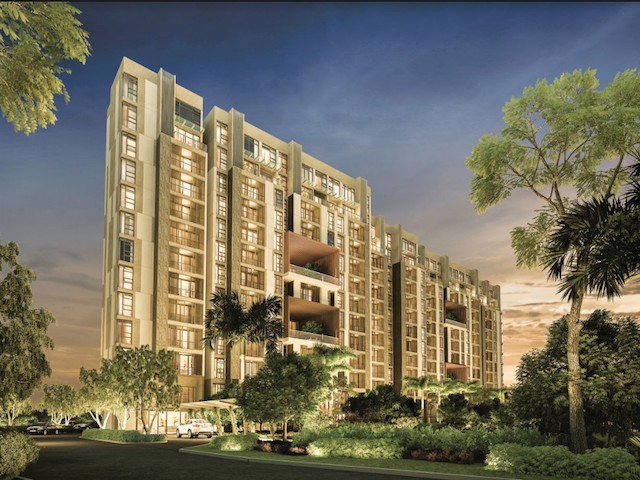Singapore, a global financial hub, has long been a magnet for foreign investment. This small island nation boasts a highly developed and free-market economy, attracting investors worldwide. One sector that has particularly benefited from foreign capital is the real estate market, specifically condominiums. This article delves into the critical role foreign investment plays in Singapore’s condo market, examining its impact, the reasons behind its attractiveness, and future trends.
Why Singapore Attracts Foreign Investors
Strategic Location
Singapore’s strategic location in Southeast Asia makes it an ideal hub for business and trade. Its proximity to major markets such as China, India, and Australia enhances its appeal to international investors. The city-state’s well-developed infrastructure, including its world-class airport and port facilities, further solidifies its position as a prime investment destination.
Political and Economic Stability
One of Singapore’s most significant attractions is its political and economic stability. The government’s transparent and investor-friendly policies provide a safe and predictable environment for foreign investors. This stability extends to the real estate market, where regulatory frameworks are in place to protect investors’ interests.
Strong Legal Framework
Singapore’s robust legal system ensures that property rights are well-protected. The enforcement of laws is stringent, providing a secure environment for investment. This legal reliability is a key factor that attracts foreign investors to the condo market.
High Quality of Life
The high standard of living in Singapore, with its excellent healthcare, education, and recreational facilities, makes it an attractive place for expatriates and high-net-worth individuals. This, in turn, drives demand for high-end condominiums, making them a lucrative investment option.
Impact of Foreign Investment on the Condo Market
Price Appreciation
Foreign investment has significantly contributed to the appreciation of condo prices in Singapore. The influx of foreign capital drives demand, leading to higher property prices. While this benefits property owners and investors, it also raises concerns about affordability for local buyers.
Development of Luxury Condominiums
The demand from foreign investors has spurred the development of luxury condominiums. These high-end properties cater to the tastes and preferences of affluent international buyers, featuring premium amenities and prime locations. Developers are motivated to build upscale condos to meet this demand, enhancing the overall quality of the housing market.
Increased Market Liquidity
Foreign investment brings liquidity to the condo market. This increased liquidity makes it easier for property owners to buy and sell units, fostering a dynamic and vibrant real estate market. It also attracts more developers to invest in new projects, ensuring a steady supply of condos.
Economic Growth and Job Creation
The real estate sector, bolstered by foreign investment, contributes significantly to Singapore’s economic growth. The development of new condominiums creates jobs in construction, real estate services, and related industries. Additionally, the spending by foreign investors and expatriates in the local economy further stimulates growth.
Challenges and Concerns
Affordability Issues
One of the primary concerns associated with foreign investment in the condo market is affordability. The rising prices driven by foreign demand can make it challenging for local residents to purchase homes. This issue has prompted the government to implement cooling measures, such as additional buyer’s stamp duty (ABSD) for foreign buyers, to curb speculative investments and ensure affordability for locals.
Speculative Investments
Speculative investments by foreign buyers can lead to market volatility. Investors looking for short-term gains may contribute to price bubbles, which can be detrimental to the market’s stability. The government’s regulatory measures aim to mitigate these risks, promoting sustainable growth.
Dependence on Foreign Capital
An over-reliance on foreign investment can make the real estate market vulnerable to external economic conditions. Global financial crises or changes in foreign investor sentiment can impact the flow of capital into Singapore’s condo market. Diversifying the investment base and promoting domestic investment are essential to mitigate these risks.
Future Trends in Foreign Investment
Increased Interest from Asian Investors
Asian investors, particularly from China, Malaysia, and Indonesia, have shown a growing interest in Singapore’s condo market. This trend is expected to continue, driven by regional economic growth and increasing wealth in these countries. Singapore’s appeal as a stable and prosperous investment destination will likely attract more Asian capital. Come and visit Emerald Of Katong to find additional tips and ideas about foreign investment in Singapore’s condo market.

Sustainable and Smart Developments
There is a rising trend towards sustainable and smart condo developments. Foreign investors are increasingly looking for properties that incorporate green building technologies and smart home features. Developers in Singapore are responding to this demand by integrating sustainability and technology into new projects, making them more attractive to international buyers.
Government Initiatives
The Singaporean government is continuously refining its policies to balance foreign investment and local affordability. Future initiatives may include more targeted cooling measures, incentives for sustainable development, and efforts to diversify the investor base. These policies aim to maintain the attractiveness of Singapore’s condo market while ensuring its long-term stability and inclusivity.
Impact of Global Economic Trends
Global economic trends, such as interest rate fluctuations and geopolitical developments, will influence foreign investment in Singapore’s condo market. Investors will need to navigate these trends carefully, considering their potential impact on property values and returns. Singapore’s resilience and proactive policy measures, however, position it well to adapt to these changes.
Conclusion
Foreign investment plays a crucial role in shaping Singapore’s condo market. It drives price appreciation, fosters the development of luxury properties, increases market liquidity, and contributes to economic growth. However, it also presents challenges, such as affordability issues and market volatility. The Singaporean government’s regulatory measures and the evolving preferences of foreign investors will continue to shape the future of the condo market.
As Singapore navigates the complexities of foreign investment, it remains a top destination for real estate investors seeking stability, growth, and high-quality living. The ongoing development of sustainable and smart condominiums, coupled with strategic government policies, will ensure that Singapore’s condo market remains robust and attractive to foreign investors for years to come.





